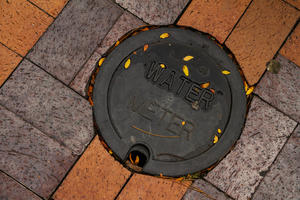How often do you stop and think about your daily use of water? It’s one of those things that we’re privileged to have easy access to and most of us will admit, we take advantage of. Water Makes it Possible is a national campaign coordinated by the Non-Government Organisation (NGO) Waterwise, in partnership with CCW, Citizens Advice Scotland and The Consumer Council, running from 19 October to 19 November 2020.
We’re proud supporters of Waterwise’s work to reduce water consumption in the UK and spread awareness and education about the importance of water efficiency. Water Makes it Possible is a chance to stop and think about our own water consumption and wastage.
Water is a business cost like any other, so while it’s important to think of the conservation benefits of minimising water waste on your premises, it’s also an area you can make a cost saving.
What does water make possible?
If you think of your daily tasks and many actions which simply happen without you thinking, how often is water involved? From the click of the kettle to the flush of the loo, water is a consistent and often forgotten presence in our daily lives. The statistics around water usage can sound shocking but did you know:
- The average water use per person per day in England is 143 litres.
- Water is a hidden factor in many industrial processes: the average cotton t-shirt has around 2,700 litres of water involved throughout its production.
- Despite the abundance of water on our Blue Planet, only 1% is fresh and accessible for use.
- Animal and in particular cattle farming account for significantly more water usage than other crops according to UNESCO, leading for calls for a more plant-based diets amongst water conservationists.
- Nearly 80% of all wastewater is never used again: the UN suggest recycling water properly could help with conservation, significant quantities of wastewater go back into the ecosystem and can cause pollution.
Looking just at these statistics it’s easy to see why we should take more care with our water usage and treat it with more respect.
Respect and protect our water supply
Yes, we pay for water. Our rates are set in line with what we use but water is worth so much more than the price we pay. Since 2010 the United Nations has recognised the human right to water and sanitation. Beyond this, our planet requires safe, clean water to function as it should and protect and support its wildlife.
We’re lucky we’ve enough water to live comfortably, but this can’t last forever if we continue to waste it in the same way. Already some species such as otters and water voles are at risk as free-flowing rivers are becoming shallower. Research worryingly shows more than one in five of our water bodies in England already suffer from, or are at risk of suffering from, too much water being taken from them to supply homes and businesses. Even more of a concern is that more than 50% of species dependent on the UK’s rivers, lakes and wetlands are already in decline. Without wanting to be too negative these are the facts, but now it’s time to look at practical changes we can make to save water at home and in business.
Actionable workplace water saving tips
Water efficiency at work may be something you’ve never even considered. However, as well as being beneficial for the environment and conserving water generally, if you use less water, your water costs will also decrease. There are plenty of ways you can make changes to save water, in many different parts of your business including:
- Utilise water-saving devices in bathrooms such as waterless urinals, efficient flushes and automatic/sensor taps.
- Regularly check your water meters: if your premises are large or part of a block then leaks can often go unnoticed. Be sure to take regular readings, to see if there is any water use over down periods, such as evenings and weekend and then make sure any leaks are fixed.
- Protect pipes against the cold: unprotected pipes are much more likely to burst in cold weather, resulting in the risk of considerable damage and gallons of water wasted.
- Check in with your water retailer: some water retailers are more than happy to provide business water audits and advise where you can make changes to improve the water efficiency of your business. As a Wave customer speak to your Account Manager or our Customer Experience team for more information.
- Make your staff more waterwise: educate your team to operate with water conscientiousness. Offer training, guides, and guidance on what needs to happen water-wise within the business to meet your water-saving goals.
Changes to save water at home
Instilling a culture of protecting and saving water can be something you extend from the workplace by sending your employees home saving water tips too. Small changes can make all the difference and here are some very simple ways you can save water at home and encourage your teams to do the same:
- Collect the water used in cooking and use it to water plants or make stocks and soups to keep and freeze.
- When waiting for your water to turn hot, collect the initial cooler water as it runs for use in the garden or for your houseplants.
- Re-iron shirts worn for one day. It‘ll give them the quick refresh they need, without needing to wash them daily.
- Always choose the shower. While baths can be a bit of a luxury, a short refreshing shower ensures you keep water wastage to a minimum.
- Fix those leaks: dripping taps are responsible for as much as 5,500 litres of wasted water every year so fixing even the smallest drip could make a significant difference over time.
Imagine the price of no water
It’s extremely easy to take our access to clean, running water for granted in our homes and businesses. Right now, we don’t have to think about how precious water is. But, shockingly, some parts of the UK are predicted to run out of water within ten years, if we don’t change course now. Campaigns such as Water Makes It Possible are key to changing opinions and encouraging more people to consider their daily water usage, and wastage.


